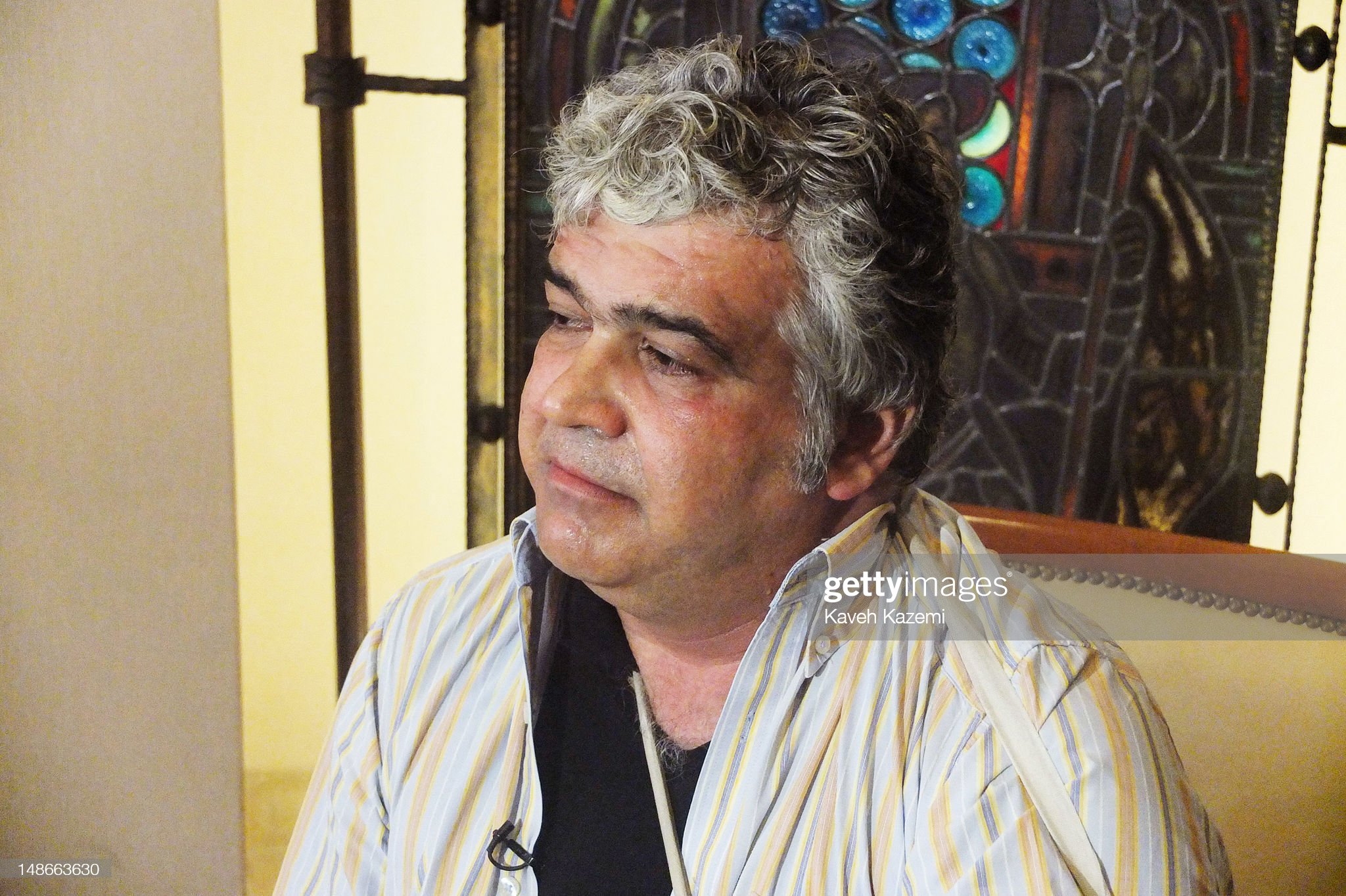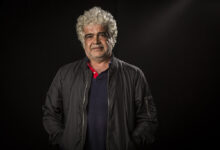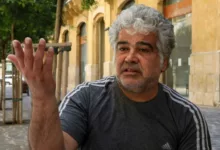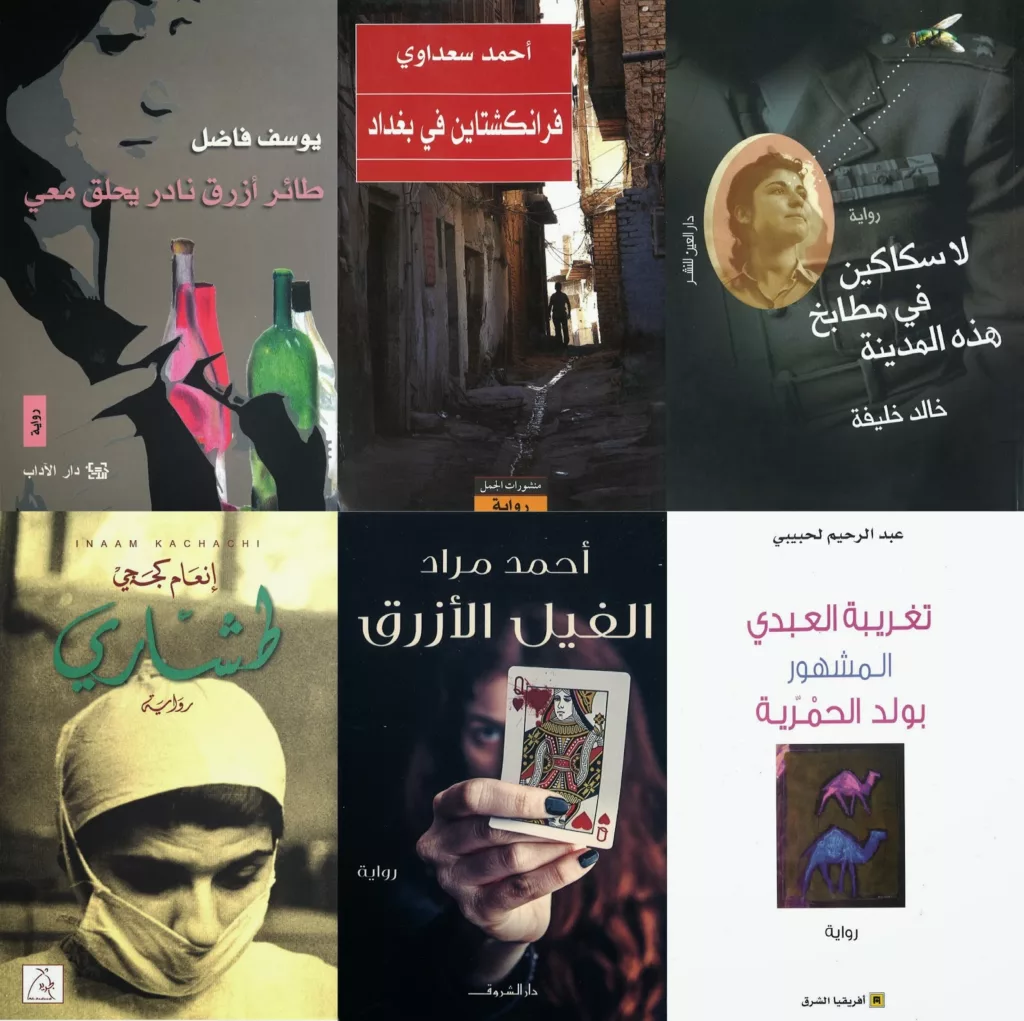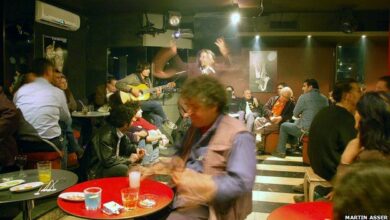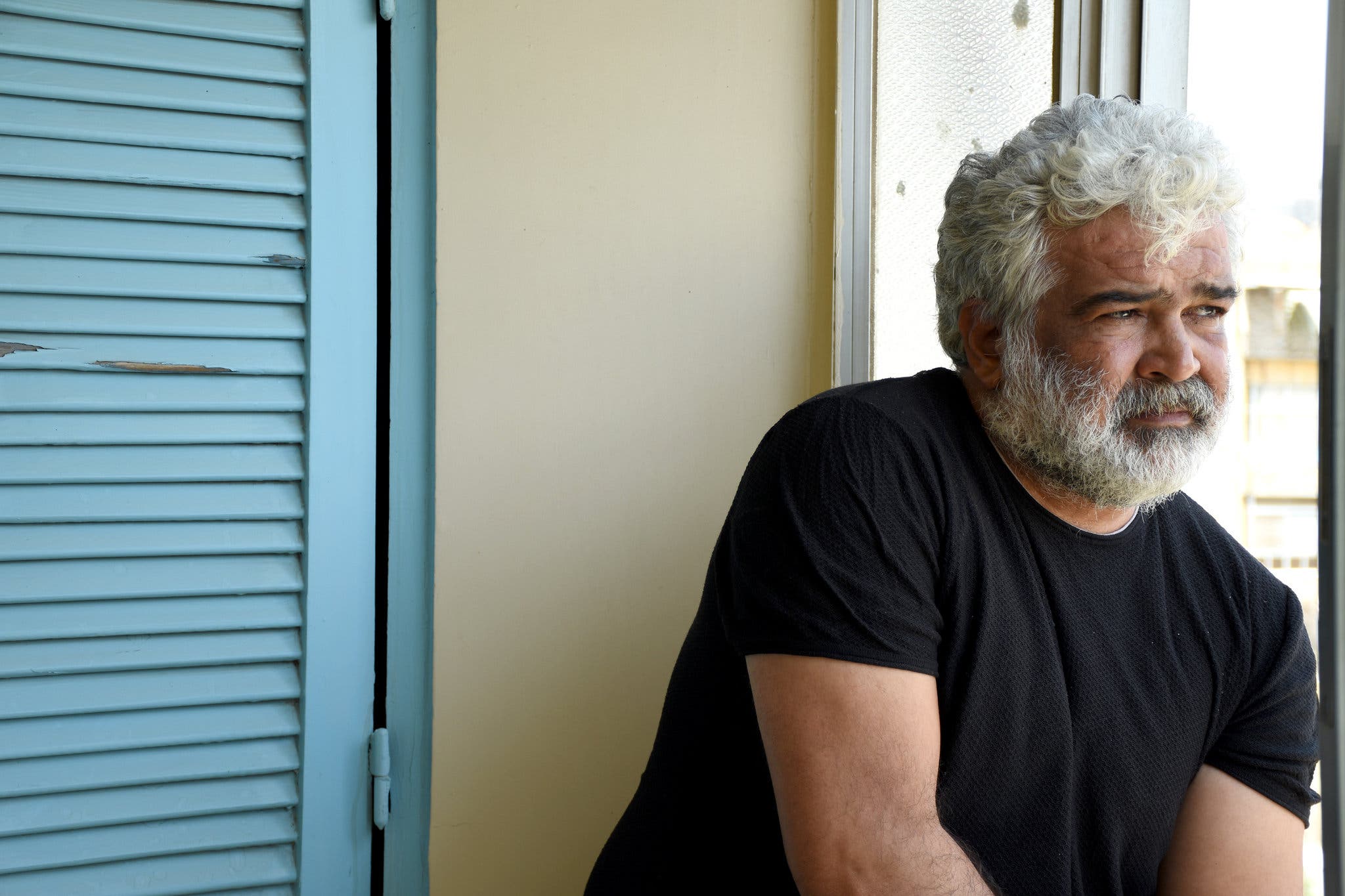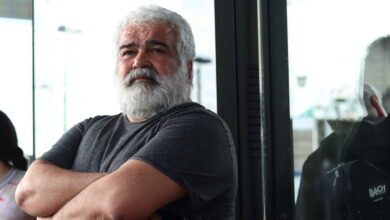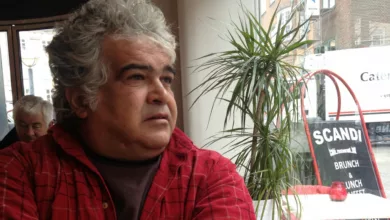The International Prize for Arabic Fiction (IPAF) shortlist was announced this morning at a news conference in Amman, Jordan, where the year’s five judges were also revealed:
Two Moroccan novelists — Youssef Fadel (for A Rare Blue Bird That Flies With Me) and Abdelrahim Lahbibi (for The Journeys of ‘Abdi)— were joined by previously shortlisted Syrian novelist Khaled Khalifa (for No Knives in The Kitchens of This City) and Iraqi novelist Inaam Kachachi (for Tashari), the popular Egyptian novelist Ahmed Mourad (for The Blue Elephant), and the “Beirut39” laureate, Iraqi novelist Ahmed Saadawi (for Frankenstein in Baghdad).
The range of novels is broad — from the popular to the literary, from historical to psychological thriller to science fiction. The list also presents work from two younger authors, Ahmed Mourad and Ahmed Saadawi, as well as established, acclaimed authors like Khaled Khalifa and Youssef Fadel.
Khalifa also won the 2013 Naguib Mahfouz Medal for his No Knives, which was widely expected to be on the shortlist.
If Khalifa was a shoe-in for the shortlist, popular novelist Ahmed Mourad’s inclusion delighted his many fans and irritated detractors. Previously shortlisted novelist Khaled al-Berry wrote on Facebook that he was pleased with Ahmed Mourad’s inclusion on the 2014 IPAF shortlist, as it represented “a new way of thinking in writing.” Well-plotted writing was deserving of appreciation, and the courage to write in a new way “deserves to be celebrated.”
Translator and academic Samah Selim added that Mourad also “has a great talent for building quirky, convincing characters whose obsessions insistently pick at the nightmares of ‘the real’ in a language that is fluid, earthy, hilarious and at times quite poignant.”
In her review of No Knives in the Kitchens of This City, which was perhaps the most-expected book on the shortlist, Asmaa Abdallah writes that the novel is a “powerful, morbid, and paralyzing depiction of a devastated and deteriorating Aleppo” and that the novel creates a “shiver-in-sadness effect” in its readers. Translator Elisabeth Jaquette has said ” there is a visceral quality to Khalifa’s writing; his description engages all your senses, it’s filled with smells and sounds.”
Another shortlisted novel garnering a good deal of attention today is Ahmed Saadawi’s Frankenstein in Baghdad, about which reviewer al-Mustafa Najjar wrote that it’s a novel “that captures that in-between moment of ‘remaining in the middle’… No one is a pure criminal or a pure victim in the time of war: everyone has a bit of both. Even the saint has a conflicted nature.”
Although Saadawi’s novel has in some places been classed as science fiction, it’s perhaps more accurate to call it a literary novel with elements of magical realism, horror, and perhaps science fiction.
Unlike last year, there were no “celebrity,” non-author surprises among the judges. The judging chair this year is Saudi academic Saad Albazei, who did his graduate work at the US’s Purdue University, Turkish Arabist and translator Mehmet Hakki Suçin (@mhsucin), Libyan writer Ahmed Alfaitouri (@afaitouri), Moroccan novelist and academic Zhor Gourram, and Iraqi critic Abdullah Ibrahim.
Suçin was not at the shortlist announcement, as he was reportedly ill.
In a prepared statement, Albazei said that “This year’s longlist was full of excellent books – a reflection of the overall quality of Arabic fiction published this year – so it was a real challenge to whittle the list down to just six. The shortlisted novels are varied in their narrative styles and language: from discovering virtual reality to the mingling of fantasy and reality, they also include classical language and multiple narrative voices and demonstrate the Arabic novel’s ability to flower despite the harsh realities of daily life.”
As in previous years, the judges assured news conference-goers that the Board of Trustees did not intervene in their discussions, and that they didn’t feel any pressure from them, stating that they’ve been working with complete independence.
Judges read through a record number of submissions — 156 — this year.
The winner will be announced on April 29, in Abu Dhabi, on the eve of the Abu Dhabi International Book Fair.
Watch the video of the news conference:
Published on Arablit here


